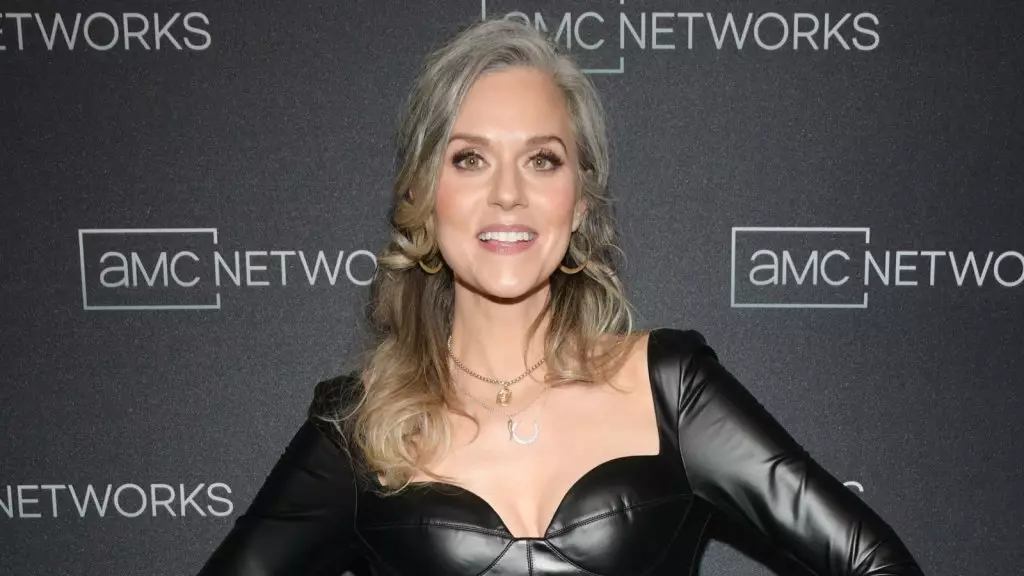The landscape of television is constantly shifting, with beloved shows often re-emerging to embrace modern themes and stories. Such is the case with the iconic teen drama “One Tree Hill,” which may soon see a revival spearheaded by former cast members Hilarie Burton-Morgan and Sophia Bush. After the unfortunate departure of the show’s original creator, Mark Schwahn, following serious allegations of misconduct, a profound opportunity has emerged for the women of “One Tree Hill” to reclaim their narrative.
At the forefront of this revival is showrunner Becky Hartman Edwards, a proven talent known for her work on series that center around female friendships and diverse, multi-generational storytelling. In her collaboration with Burton-Morgan and Bush, Edwards aims to bring a fresh perspective to a narrative that has resonated with audiences for years. Burton-Morgan expressed optimism about the direction of the reboot, highlighting Edwards’s strengths that align with the show’s core values of friendship and empowerment.
This shift in leadership is particularly significant for both the cast and the audience, as it symbolizes a break from past controversies while also fostering an environment focused on collaboration, creativity, and authenticity. By engaging with a new creative team that prioritizes women’s stories and experiences, the reboot seems poised to not only revisit the world of Tree Hill but also to deepen its exploration of friendships, love, and the trials of adulthood.
One of the pivotal aspects of the reboot is its potential for introspection and healing in the wake of its troubled history. The past allegations against Schwahn cast a long shadow over the series, leading many former cast and crew members to speak out. The new series serves as an opportunity for Burton-Morgan, Bush, and other female voices to build a show that speaks not only to their experiences but also to those of their fans.
Burton-Morgan articulated a compelling hope that the new narrative can be a reclaiming of sorts: a chance for the show’s legacy to reflect a progressive stance on storytelling, particularly regarding female representation. Still, she remained clear-eyed about the challenges ahead, acknowledging that the reboot has not yet been officially greenlit. The enthusiasm of both fans and the involved creatives can significantly influence the decision-making process, making it essential for engagement and support to flourish during this developmental phase.
The potential continuation of “One Tree Hill” captivates the original audience while also appealing to new viewers. As the reboot is set to take place two decades after the original series, the creators are poised to explore the realities of parenthood, love, and insecurity through the lens of characters who were once relatable teenagers. This approach not only retains nostalgic elements but also allows for reflections on growth and maturity, enriching the story with relatable themes.
Bush’s comments highlight the deep connection that fans have forged with the show, keeping its spirit alive over the years. Her acknowledgment of the original fanbase’s desire for a continuation reinforces the significance of storytelling as a shared experience, allowing viewers to engage in emotional narratives that resonate with their own lives.
The focus on storytelling that is authentic and meaningful is particularly poignant in today’s entertainment landscape, where diverse and inclusive narratives are more important than ever. With figures such as Edwards at the helm, there is hope that the reboot will honor its roots while paving the way for new and lasting conversations.
The excitement surrounding the “One Tree Hill” revival is not solely about revisiting a beloved show; it’s about a broader cultural shift that seeks to highlight the importance of female narratives in television. By rallying under a new banner of leadership and creativity, the women behind the reboot are challenging stereotypes and redefining what it means to share stories in today’s digital age.
Ultimately, the revival raises important questions about legacy, representation, and the evolution of storytelling. As Burton-Morgan and Bush embark on this new chapter, audiences can remain hopeful that “One Tree Hill” will return not just as a nostalgic trip down memory lane, but as a relevant and powerful commentary on the lives of women navigating the complexities of friendship and family. Here’s to hoping that Tree Hill can once again become a place where “everything’s better and everything’s safe.”


Leave a Reply